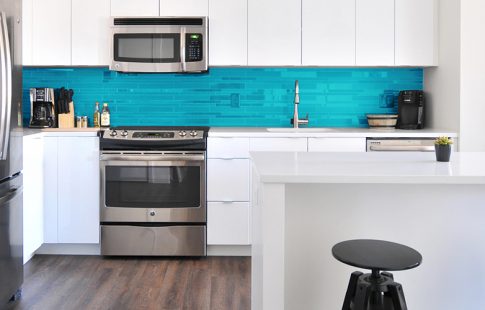Estimated reading time: 4 minutes
A cash-out refinance or home equity loan (HEL) can both turn your home equity into cash, but a major difference is that one will leave you with two mortgages on your house. This has pros and cons, and a key factor may be your loan’s final interest rate. Here’s a quick review of what home equity is and how each of these options works.
Key Topics
What is home equity?
Home equity is the amount of your home that you own. You can estimate it by subtracting your mortgage balance(s) from your home’s value.
Example: Your home is worth $400,000 and you owe $100,000 on your mortgage, you have $300,000 in equity. ($400,000 – $100,000 = $300,000)
Standards can vary by lender, but homeowners can generally turn up to 80% of their home equity into cash. VA loans can allow more.
Now let’s look at how each of these loan options can help you turn that equity into cash.
Cash-out refinances explained
With a cash-out refinance,* your existing mortgage is replaced with a new mortgage with a higher balance. That balance is higher because it includes the amount of home equity you want to cash out.
Example: Let’s say you have a $250,000 balance on your current mortgage, and want to turn $50,000 into cash. Your new, refinanced mortgage will have a total balance of $300,000, plus any fees and closing costs.
$250,000 + $50,000 = $300,000
Your entire balance will also get an interest rate based on going rates. This one factor alone can make or break the decision to go with a cash-out refinance for some homeowners. (But don’t be too quick to decide, as we’ll explain later.)
- That’s because today’s mortgage rates are in the 6–7% range, but most homeowners have mortgages in the 3–4% range.
- Cash-out refinances also have slightly higher rates than a typical mortgage because they’re riskier loans.
If you don’t want to give up your lower rate for a higher one, a home equity loan may be the better option. Crunch the numbers before you decide. If you have a low mortgage balance right now, doing a cash-out refinance may still make financial sense.
- Our refinance calculator can walk you through an estimate.
- Watch for the field that says “Cash-Out Amount” to enter the amount of equity you want in cash.
Home equity loans explained
Home equity loans** create a second mortgage against your home. For that reason, they’re also known as “second lien loans.” In this case, the home equity loan will only be for the amount of home equity you want to turn into cash. Your existing mortgage will be left as is, with no change to your interest rate. That means that if you’re comfortable with that payment, you’ll get to keep it.
The HEL’s interest rate will be based on the going rates. And, as with a cash-out refinance, the rate will be slightly higher, because these types of loans carry more risk for lenders.
Example: So, let’s say you still have a $250,000 mortgage balance at 3% and want $50,000 of your equity in cash. You’ll have:
- Your existing mortgage for $250,000 with that 3% interest rate.
- Plus a second lien loan for $50,000 at today’s rates, plus any fees and closing costs.
Our mortgage payment calculator can help you estimate what a home equity loan may cost. Also note that with a home equity loan with Mr. Cooper, you’ll have lower closing costs and a faster process than a cash-out refinance.
How can I get started?
If you’re weighing a cash-out refinance vs. a home equity loan, Mr. Cooper can help! Talk to one of our Mortgage Professionals about your options today at 833-702-2511 or get started online.
*A cash‐out refinance increases your mortgage debt and reduces the equity you may have in your home. Your monthly mortgage payments may be higher.
**Second mortgages are only available on properties with a first lien mortgage serviced by Mr. Cooper. Second mortgages available for primary residences only. Second mortgage/home equity loan amounts depend on the amount of equity you have in your home, your credit score, debt-to-income ratio, and other factors and program limits on the combined loan-to-value ratio. Not all borrowers or properties will qualify. Not available on properties located in TX, VT, NY, Washington DC, GU, PR, VI.







